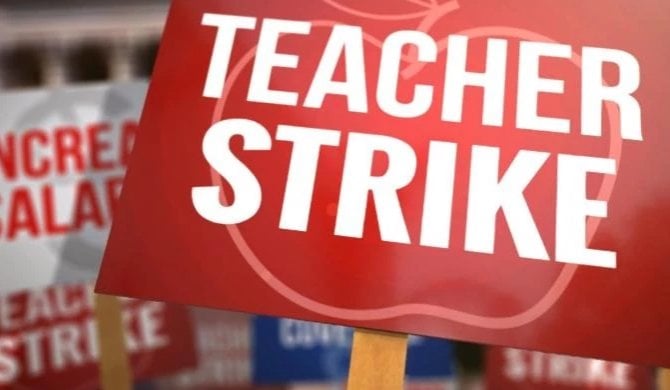The University Teachers Association of Ghana (UTAG), the Technical University Teachers Association of Ghana (TUTAG), and the Colleges of Education Teachers Association of Ghana (CETAG) have jointly issued a stern ultimatum to the Ghanaian government concerning the delayed disbursement of the Book and Research Allowance (BRA). This allowance, a crucial component of the educators’ conditions of service, is designed to facilitate research and academic development among teaching staff in tertiary institutions. The delay in its release has caused significant anxiety and uncertainty among the academic community, potentially jeopardizing vital research initiatives and overall teaching effectiveness. The joint statement issued by the three unions underscores the severity of the situation and the collective resolve of the teaching staff to ensure timely payment of their rightful entitlement.
The core issue at hand is the government’s failure to announce the official exchange rate for the allowance and subsequently commence the disbursement process. This delay has left academic staff in a precarious financial position, unable to adequately plan and execute their research endeavors. The unions contend that this inaction not only undermines their individual research efforts but also has broader implications for the quality of education and academic advancement in Ghana. The BRA is not merely a supplementary benefit but a fundamental component of their compensation package, designed to support the continuous professional development of educators and enhance the overall standard of tertiary education.
In a meeting held on June 8, 2025, the leadership of UTAG, TUTAG, and CETAG reached a unanimous decision to demand immediate action from the government. Their joint press release, issued on June 9, 2025, calls upon the government to “as a matter of urgency, release the exchange rate and commence the payment process for the book and research allowance.” This collective stance reflects the seriousness of the issue and the united front presented by the three unions. They acknowledge the existing delay in the release of the rates but emphasize their unwillingness to tolerate any further postponement of the payment beyond September 2025. This firm deadline underscores their commitment to ensuring timely access to the allowance and avoiding any further disruptions to their academic work.
The ultimatum issued by the unions carries a significant weight, as it explicitly states that failure to initiate the payment process by June 13, 2025, will be construed as a formal strike notice. This implies that all three unions – UTAG, TUTAG, and CETAG – will embark on a strike across all campuses if their demands are not met within the stipulated timeframe. The potential for a widespread strike highlights the depth of their frustration and their determination to secure their legitimate entitlement. The unions are prepared to take drastic action to protect their interests and ensure that the government fulfills its obligations towards them.
The unions’ decision to resort to a potential strike underscores the critical role the BRA plays in their professional lives. This allowance is instrumental in supporting research activities, purchasing essential academic materials, and attending conferences – all of which contribute to the continuous professional development of educators and enhance the quality of education. The delay in its disbursement therefore directly impacts their ability to effectively perform their duties and contribute meaningfully to the academic landscape. The unions are essentially arguing that the government’s inaction jeopardizes not just their personal welfare but also the broader advancement of knowledge and scholarship in Ghana.
The unions’ press release concludes with a strong appeal to the government to act swiftly and decisively to avert the looming crisis. They urge the authorities to recognize the potential repercussions of a strike, including disruptions to the academic calendar and the negative impact on students’ education. By emphasizing the broader consequences of their potential action, the unions are seeking to impress upon the government the urgency of the situation and the need for a prompt resolution. They are calling for a responsible and timely intervention to safeguard the welfare of educators and students alike, and to ensure the continued smooth functioning of the tertiary education system in Ghana. The release was duly signed by the national executives of all three unions, signifying the collective and official nature of the ultimatum.


